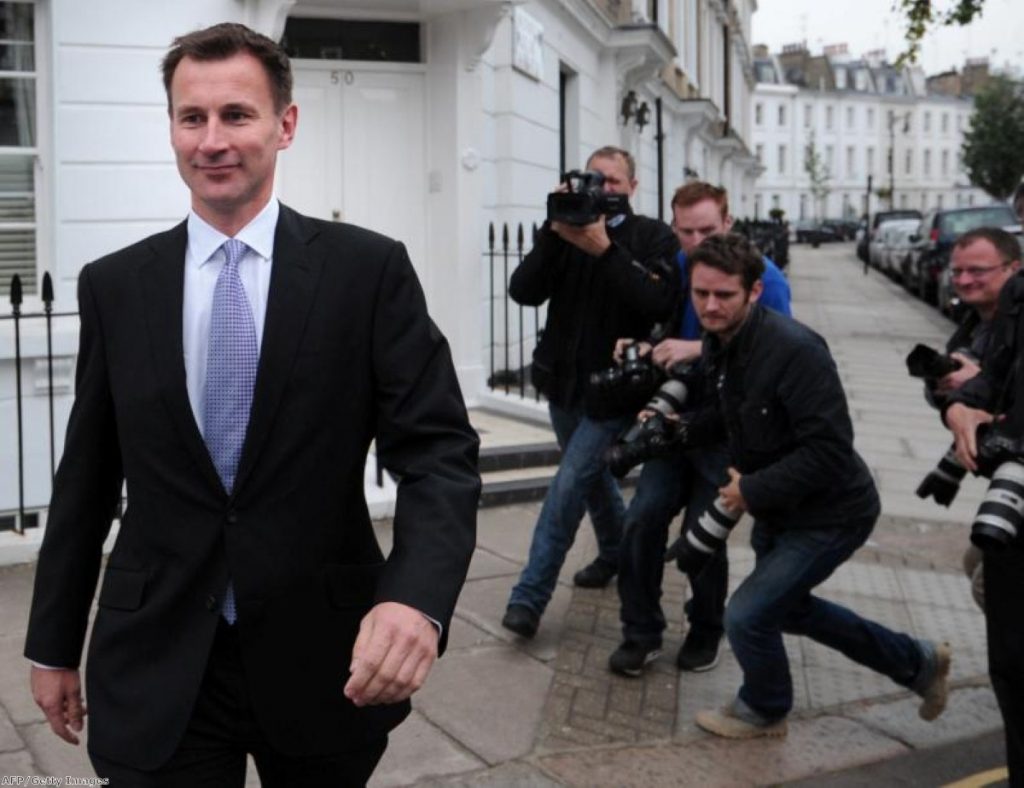Hunt left helpless after punishing interrogation on abortion evidence
Jeremy Hunt was repeatedly unable to provide evidence for his view that the abortion time limit should be dropped to 12 weeks today, during a punishing media interview.
Appearing on Radio 4's Today programme to announce changes to doctor evaluation regimes, the health secretary was quickly drawn onto his comments about abortion, which threatened to derails the start of the Conservative party conference earlier this month.
"I was simply answering a question on why I voted the way I did in a free vote in 2008, but it's very important all your listeners understand I said this was a free vote – it's not government policy to change the law," he said.
Asked repeatedly to cite the evidence he referred to in the original Times interview, Hunt evaded the question.


"I learnt from that interview with the Times that if I go into details as to why I came to that view four years ago that is interpreted as being something I am going to take action on," he said.
"I'm not going to get drawn into why I voted the way I did.
"I vote with my conscience. It wasn't a religious reason."
The health secretary also struggled with his views on homeopathy, which he had previously defended as medically valid when supporting a motion calling for it to be provided on the NHS.
Homeopathy does not have any evidential legitimacy and has been dismissed by a parliamentary committee.
But asked repeatedly if his views on homeopathy had changed, Hunt refused to even mention the word.
"I believe all my decisions as health secretary should be based on science and should be evidence based," he said.
"I have previously said we have to have some humility about what we do know and what we don't know, but I will follow scientific advice."
Hunt was on the programme to highlight reforms which introduce revalidation of doctors, who will now be given annual assessments and full five-yearly checks to check for competency.
The General Medical Council (GMC) will be responsible for the validation, using annual assessments and patient questionnaires.









